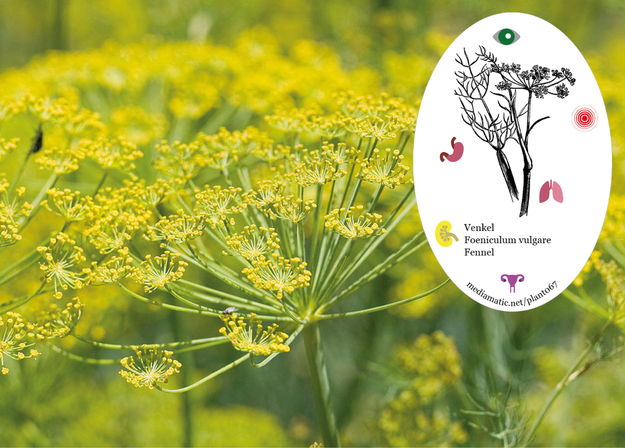Fennel has a long history of herbal use and is a commonly used household remedy, being useful in the treatment of a variety of complaints, especially those of the digestive system. The seeds, leaves and roots can be used, but the seeds are most active medicinally and are the part normally used. An essential oil is often extracted from the fully ripened and dried seed for medicinal use, though it should not be given to pregnant women. The plant is analgesic, anti-inflammatory, antispasmodic, aromatic, carminative, diuretic, emmenagogue, expectorant, galactogogue, hallucinogenic, laxative, stimulant and stomachic. An infusion is used in the treatment of indigestion, abdominal distension, stomach pains etc. It helps in the treatment of kidney stones and, when combined with a urinary disinfectant like Arctostaphylos uva-ursi, makes an effective treatment for cystitis. It can also be used as a gargle for sore throats and as an eyewash for sore eyes and conjunctivitis. Fennel is often added to purgatives in order to allay their tendency to cause gripe, and also to improve the flavour. An infusion of the seeds is a safe and effective cure for wind in babies[244]. An infusion of the root is used to treat urinary disorders. An essential oil obtained from the seed is used in aromatherapy. Its keyword is 'Normalising'. The essential oil is bactericidal, carminative and stimulant. Some caution is advised, see notes above on toxicity. The German Commission E Monographs, a therapeutic guide to herbal medicine, approve Foeniculum vulgare for cough, bronchitis, dyspeptic complaints. Source: https://pfaf.org/
Fennel
Foeniculum vulgare
Find more about this plant on Wikipedia.
